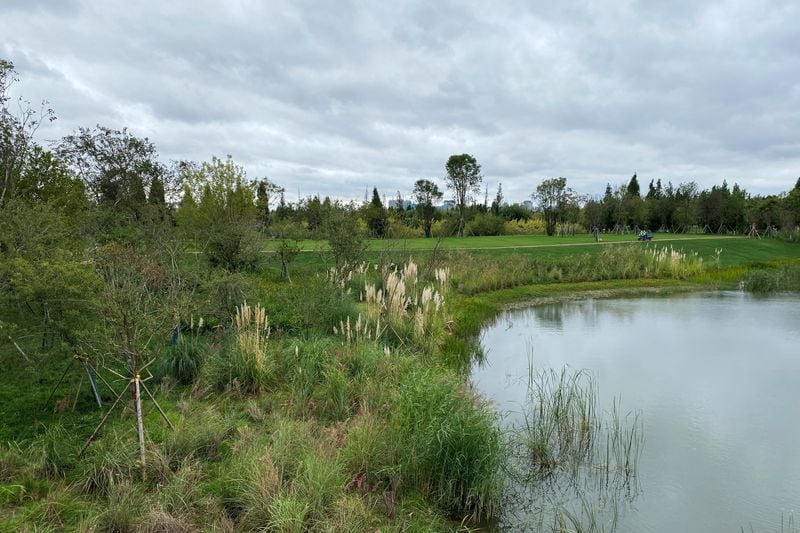
“Groundwater, making the invisible visible.” This is the theme that the United Nations chose this year to celebrate World Water Day, that resource without which life on Earth is impossible. This water resource represents, apart from glaciers and polar ice caps, more than 90% of the freshwater available on the planet. Overexploitation and pollution of groundwater, mainly due to agricultural holdings, makes urgent action for its protection and to promote the balance between extractions and the renewal capacity of ecosystems.
“We rely heavily on groundwater, but a lot of people don't know it. World Water Day 2022 should help civil society, the private sector, international organizations and governments to be aware of the need to make water more visible,” said Abou Amani, director of UNESCO's Water Sciences Division.
In Argentina, water is essential for sustainable and inclusive development: “It is vital for the development of its population, while playing a key role in strategic economic sectors. Beyond its importance in domestic use, water in our country is an important player in the economy: it is fundamental for agriculture, which is the main source of foreign exchange, 26% of energy comes from hydroelectric sources, more than 50% of industrial demand comes from sectors with a high dependence on water (food, beverages, chemicals), 84% of exports go through water, that is, through the Paraná-Paraguay waterway”, details the latest report by the World Bank Valuing Water.
At the environmental level, Argentina has 5.6 million hectares of wetlands and 53.6 million hectares of native forests, both ecosystems where water is of vital importance - but many assets are under varying degrees of threat, the report details.
The quantitative importance of groundwater is greater than that of surface water, but since it is a “hidden resource” with a greater degree of inaccessibility, preventing pollution, monitoring and restoring its condition can be more complex than in surface waters.
Unlike surface water, groundwater moves very slowly, which has advantages and disadvantages: when it moves slowly, it produces a natural purification effect of organic pollutants; but it also implies that it is a resource that is not immediately managed, so that any action takes years to complete the cycle.

Water in numbers
The numbers referring to water security do not only refer to access to the resource or the cost of investment in sanitation. Water infrastructure and governance also increase the possibility of improvements in a country's economy.
With greater water security, the annual economic cost can be reduced by 2.2% of GDP, or US$11.8 billion. More than half of this total annual amount reflects the losses in the quality of life, including effects on health and education, of people who lack access to safe drinking water and sanitation. Other substantial cost drivers include water-related impacts from increased exposure to climate change, mainly to droughts, but also to floods.
Floods are the most recurrent threat in Argentina (54% of disasters since 1970) and droughts are one of the greatest threats in the agricultural sector (especially high risk for non-irrigated agriculture such as soy) with average annual impacts of up to $3 billion.
The lack of access to safe water and sanitation services of 7.5 million and 21 million people respectively (17 and 48 per cent of the total population respectively) has an estimated economic impact of 1.32 per cent of GDP. People without access to mains water have to pay up to 460% more for safe (bottled) water than they would pay on the water bill if they were connected to the grid.
The required investments in water security (irrigation infrastructure, drinking water coverage and sanitation) could increase the country's GDP by up to 2.7% by 2030. In absolute terms, this means an additional US$15 billion per year in added value.

So far, the diagnosis; however, only investments are not enough. A comprehensive policy is necessary. That is why the report prepared by the World Bank leaves some recommendations:
- Strengthening water resources management: it involves improving national and provincial regulatory frameworks, strengthening the role of watershed organizations, especially in areas of planning, improvements in technical capacities and broadening the available information base and transparency especially in relation to availability and quality of surface water and subsoil.
- Reduce hydrological risks and increase resilience to droughts and floods: generate early warning systems, green infrastructure, adequate land use, improve urban planning and ensure regulatory compliance, improve dam safety, and expand storage capacity with particular emphasis in multipurpose ventures.
- Inclusive and sustainable provision of water and sanitation: prioritize the expansion of services to the most vulnerable, reform of the regulatory framework (new law on drinking water and sanitation); improving efficiency in the provision of services, expanding the information system and promoting circular economy measures.
- Expansion of irrigation services in a sustainable way to mitigate impacts of climate change: improvements in efficient management compatible with other uses and integration into basin planning processes, cost recovery, new forms of financing with the private sector.
KEEP READING:
Últimas Noticias
Debanhi Escobar: they secured the motel where she was found lifeless in a cistern

The oldest person in the world died at the age of 119

Macabre find in CDMX: they left a body bagged and tied in a taxi
The eagles of America will face Manchester City in a duel of legends. Here are the details

Why is it good to bring dogs out to know the world when they are puppies




